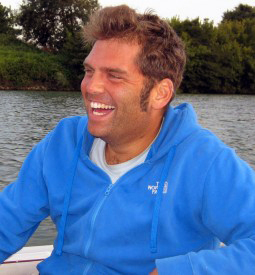The U.S. network “The Weather Channel” has acquired the U.S. rights to Tipping Points, an international coproduction exploring the tipping points of changing climate. The documentary series follows a group of scientists as they “venture off the grid to explore the perilous tipping points making our weather systems more extreme and unpredictable,” according to the network.
The 6 x 60-minute series is being produced by Australian prodco Unboxed Media and had its premiere on October 19, 2013 at 9 pm EDT. Other networks on board the doc include NHK in Japan, the ARD Group in Germany, Canvas in Belgium, VPRO in Holland and The Australia Network. “We believe this is one of the most important series being produced today, and The Weather Channel is in the unique position to be an authority on changes in climate and weather,” said Michael Dingley, senior VP of content and development at The Weather Channel Companies.
“Tipping Points will not only show how our changing climate system affect local communities in exotic and distant locales like the Amazon or Siberia, but how it impacts and is relevant to people even right here in the U.S., be it Portland, Maine or Portland, Oregon and every community in between. “We need to explore and understand what can be done to stem the tide of change before we do irreparable damage, and ultimately put our own lives at risk” (source).
Hosted by climate journalist and adventurer Bernice Notenboom, Tipping Points embraces commentary from leading climate scientists surveying the complexity of the major tipping points affecting our current climate and their impact on changing weather patterns around the globe. UCSB Geography alumnus Michael Marshall (PhD 2010) recently wrote to say, “The series titled “Tipping Points” premiers on the Weather Channel in the US this Saturday. Dutch and German versions are also available – the series will be broadcast in over 20 countries. I will be in the episode dealing with Floods and Droughts in Africa, which I think is episode 5.”
“Adventurous and informative, Tipping Points explores the interconnectedness of all the elements that make up our climate system that influence global and local weather patterns. The Earth is in a delicate equilibrium; once one factor reaches its respective tipping point the other factors will also breach stability. As the atmosphere heats up and the chemical makeup of the atmosphere shifts there will be repercussions felt on a global scale. These elements are what Bernice and her team of climate authorities are going to explore is some of the most remote locations on the planet. From the canopies of The Amazon to the ice sheets of Siberia, these climate specialists will chase answers to behavioral patterns of tipping elements in the climate system affecting our weather systems.
How close to tipping are we? When will these climates tip and what will be the indicators? How will our climate and weather patterns be affected once stability has been ruptured? Will large-scale discontinuities be the biggest cause for climate catastrophes in this century? These are the questions Tipping Points dares to ask, and further answer.
Floods, droughts, extreme monsoons, fires, heat waves and hurricanes will be the indicator of the extent to which the weather can push, and how these life-threatening weather occurrences will affect weather norms on a global scale. Join the world’s pre-eminent scientists [including our own Michael Marshall] as they go off the grid to explore the dangerous new tipping points making our weather systems more extreme and unpredictable. Discover the elements destabilizing our climate system and how these changes impact weather systems around the world” (source).




